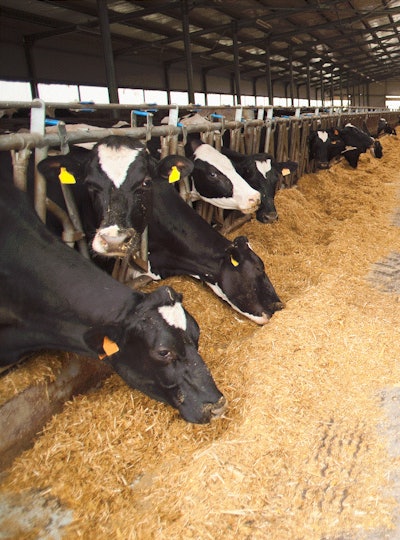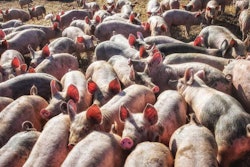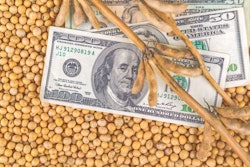
Founders hope database will enable producers to better select low-emission feed ingredients
In the near future, livestock producers will be able to select feed ingredients based not only on price and nutritional value, but according to their overall impact on the environment as well.
The Global Feed LCA database, which officially launched in September, already contains basic environmental information regarding major crops such as corn and soy in the U.S. and Canada, as well as animal feed emissions data for ingredients commonly used in Europe. But with its first month under its belt, the Global Feed LCA Institute already has bigger plans on the horizon, according to Greg Downing, board chair for the GFLI and sustainability director at Cargill.
Downing envisions building a tool where producers can actively compare the environmental impact of one feed ingredient to another, evaluating everything from the ingredient’s carbon footprint to whether it contributes to eutrophication or acidification of waterways.
“In the face of this increasing pressure on animal protein, I think it’s really important that we are able to tell an accurate story, one that reflects what is really happening on the ground,” Downing said. “Access to good data is an important part of that.”
Consumers, regulations look at environmental impact
Retailers and consumers show growing concern about the environmental impact of the food they purchase, and increasingly expect transparency around the environmental footprint of agricultural products, Downing said. By managing the lifetime environmental impact of their operations, he said, producers avoid losing environmentally conscious consumers.
But the need for accurate animal feed emissions data isn’t exclusively driven by consumer trends, Downing said. New regulations in Europe require ag producers to report the lifetime carbon footprint of their products. By getting ahead of this trend in other countries, Downing said the GFLI hopes to avoid the necessity of similar rules outside Europe.
Many farmers and animal feed producers also hope to reduce the environmental impact of animal feed, Downing said. In some cases, environmentally friendly practices result in financial sustainability for agricultural operations by reducing long-term costs.
Making lifetime environmental data publicly available, Downing said, ensures “we are making data-based decisions rather than emotion-based decisions” about what to plant and what to feed.
A preliminary version of the GFLI database, which has been available online since late September, aggregates scientific and government data from Europe and North America into high-level emissions data. Long term, Downing said, the database will expand to include data on more ingredients, from a greater number of regions. Eventually, he would to see the database source information directly from feed producers to improve reporting accuracy.
The high-level data is free to the public, but Downing said the GFLI will also launch a subscription service with more granular data and tools for analysis.












